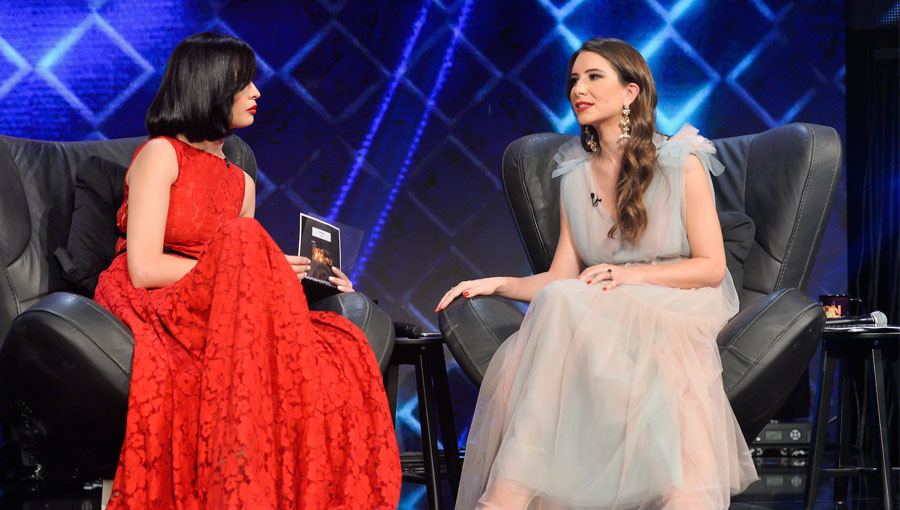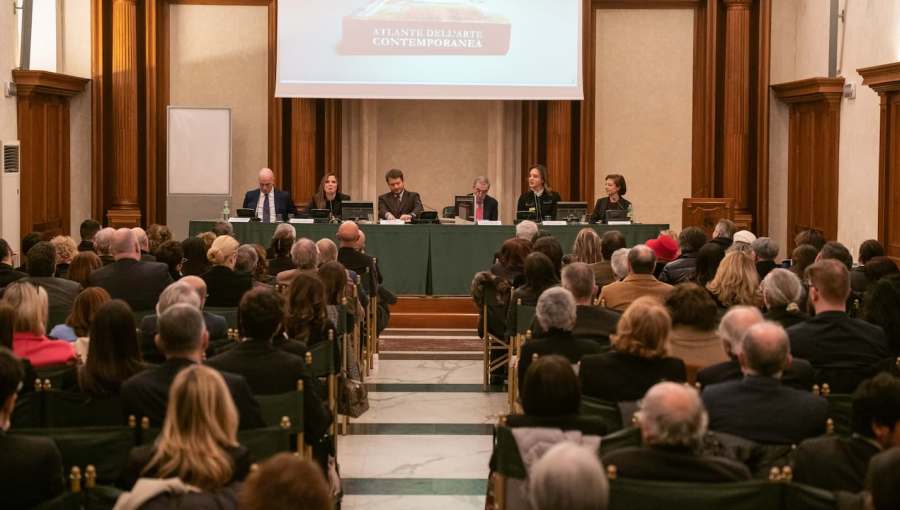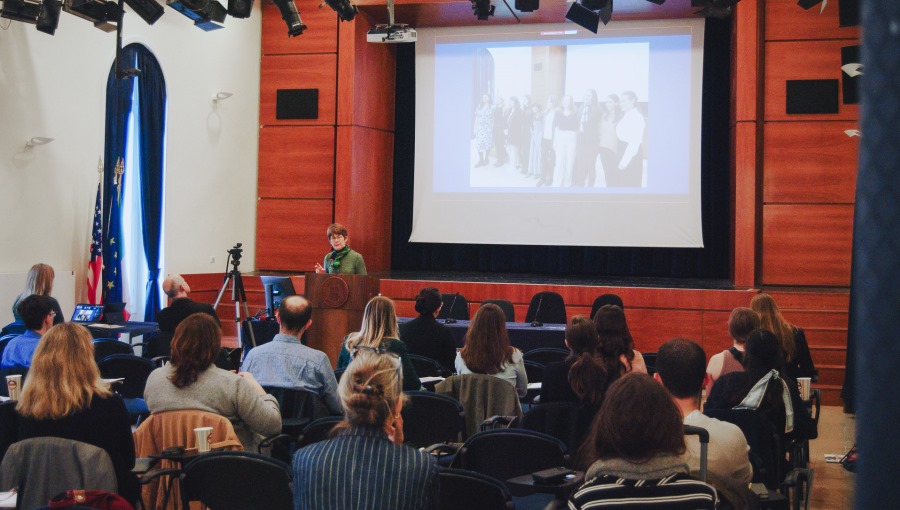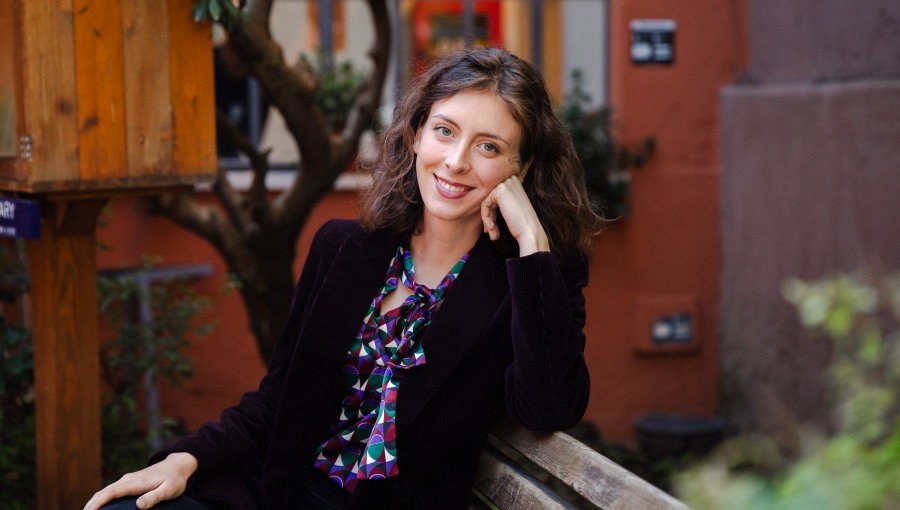The Art of Luxury: Alumna Rebecca Anne Proctor
Originally from Connecticut, Rebecca Anne Proctor graduated from John Cabot University in 2005 with a major in Art History. She went on to earn three Master’s degrees and is currently Editor-in-Chief of Harper’s Bazaar Art Arabia and Harper’s Bazaar Interiors.
What made you decide to study at JCU?
My family moved to Rome when I was 16, just before my senior year of high school and my brother and I attended AOSR (American Overseas School of Rome). After graduating from AOSR I wasn’t ready to return to the US — I wanted to stay in Italy and so I decided to attend John Cabot University and enroll in an Art History degree program.
How did you first become interested in the art/fashion/luxury goods scenes in the Arab world?
During my time at JCU, I began writing hotel and restaurant reviews for a local travel blog. This sparked my appreciation for the luxury goods sector. I saw and continue to see a luxury object as a piece of art — it has its own history, style and has been made according to a certain craftsmanship. My love for art history prompted me to pursue a Master’s in Contemporary Art at Christie’s Education in London. After a brief stint at Gagosian Gallery in London, I went to Paris to pursue a Master’s in Conflict Resolution and International Relations at the Institute Catholique de Paris.
I always dreamt of helping others, particularly in troubled regions, through art. One of my professors in Paris, Ali Rahnema, is an Iranian who was teaching a course on the Political Economy of the Contemporary Middle East. I became fascinated by the Middle East, and Professor Rahnema urged me to join a Master’s he was starting in Middle Eastern Studies at the American University of Paris. A third Master’s degree? I thought it was too much. But given the love and curiosity I was developing for the region, I decided to give it go. I ended up traveling to Beirut to do field work for my master’s thesis on Conflict Resolution and Children’s Art, working on art projects with child orphans and refugees. Back in Paris, I began working with a company that specialized in luxury branding and it was there that I did my first writing on fashion and luxury. I continued freelancing for sites such as The Business of Fashion and Haute Living. This continued even after I moved to Abu Dhabi to work for an art gallery in 2009. I thought it would be a move that would last just a year, but I have stayed ever since! My interest in art, luxury, and the Arab world developed over time and I am very lucky to have lived in the UAE during a period of immense cultural change for the country.
Tell us about your work at Harper’s Bazaar Art and Harper’s Bazaar Interiors
As Editor-in-Chief, I run the print magazine, oversee our digital site, social media and regularly take part in art and culture-related videos for Harper’s Bazaar Arabia. I also contribute to the main fashion magazine from time to time.
How hard was it to adjust to the local lifestyle in Dubai?
I greatly desired to live in the Middle East after having studied the region in so much depth in Paris. In 2009, at the time of my move, the UAE was undergoing a recession. Abu Dhabi was in stark contrast to my carefree life in Paris. It wasn’t easy to adjust but I quickly made a few friends and adapted. Life in the UAE for women is not what people think from the outside. I don’t have to wear a veil, and I can wear nearly anything I wish as long as it doesn’t offend the local culture. One regularly sees women in fashionable skirts and dresses out at night or in bikinis on the beach.
The UAE has a large expat population. How do you see yourself in this community?
The UAE population is currently around 9.27 million, with 20 percent local Emirati and around 80 percent expatriate. That’s an incredibly disproportionate number but the government is striving to balance life for both camps. That said, I have a few very close Emirati female friends now and a great mix of friends of various nationalities, including Lebanese, Jordanian, Egyptian, French, British, American, and Australian. There’s quite a number of Italians that I see regularly as well! Dubai is so mixed that at times you forget that you are living in the Middle East.
What is the biggest challenge you have faced in your professional career? How did you overcome it?
My biggest challenge and one that I am still working to overcome is how to manage my time. As the editor of a big magazine, I always have more meetings, press appointments, editing, and writing than can fit into 24 hours, let alone a week. I constantly need to prioritize from a stream of thousands of emails that fill my inbox and dozens of interviews as well as international travel. I have to make decisions very quickly regarding what will and won’t work for the magazine, also financially. I rely more and more on my gut instinct and I prioritize based on the needs of the magazine and my team. Still, you can often get sidetracked and be lured away by a curious pull towards something you shouldn’t be spending too much time on! Somehow, miraculously it seems at times, it all comes together when the issue comes out.
Media is shifting more towards digital, many newspapers and magazines around the world cannot be read in print anymore, how do these developments in technology affect the publishing world?
Publishing is no longer a one-platform industry. Every idea needs to be adapted according to various media platforms. When I am at an art fair or fashion week, for example, I need to post regularly on Instagram or send shots to my team in Dubai to post. I then need to determine what content needs to go into the online article and then the print article. Print content is now becoming more specialized; the story along with its images needs to be something that will be readable for months, even years to come.
What is your advice to JCU art history students wondering what kind of career paths their degree will lead to?
Do what your heart tells you to do. I’ve always followed my heart and my heart led me to stay in Rome and then sent me to study in London and Paris. Art History is an excellent degree because it allows you to embark on so many different paths. It provides you with visual and intellectual experience so that you are well versed for any job you desire. My advice right now: enjoy Rome to the fullest. It is one of the most beautiful cities on earth and the ability to study its art and architecture in person is a true gift.






